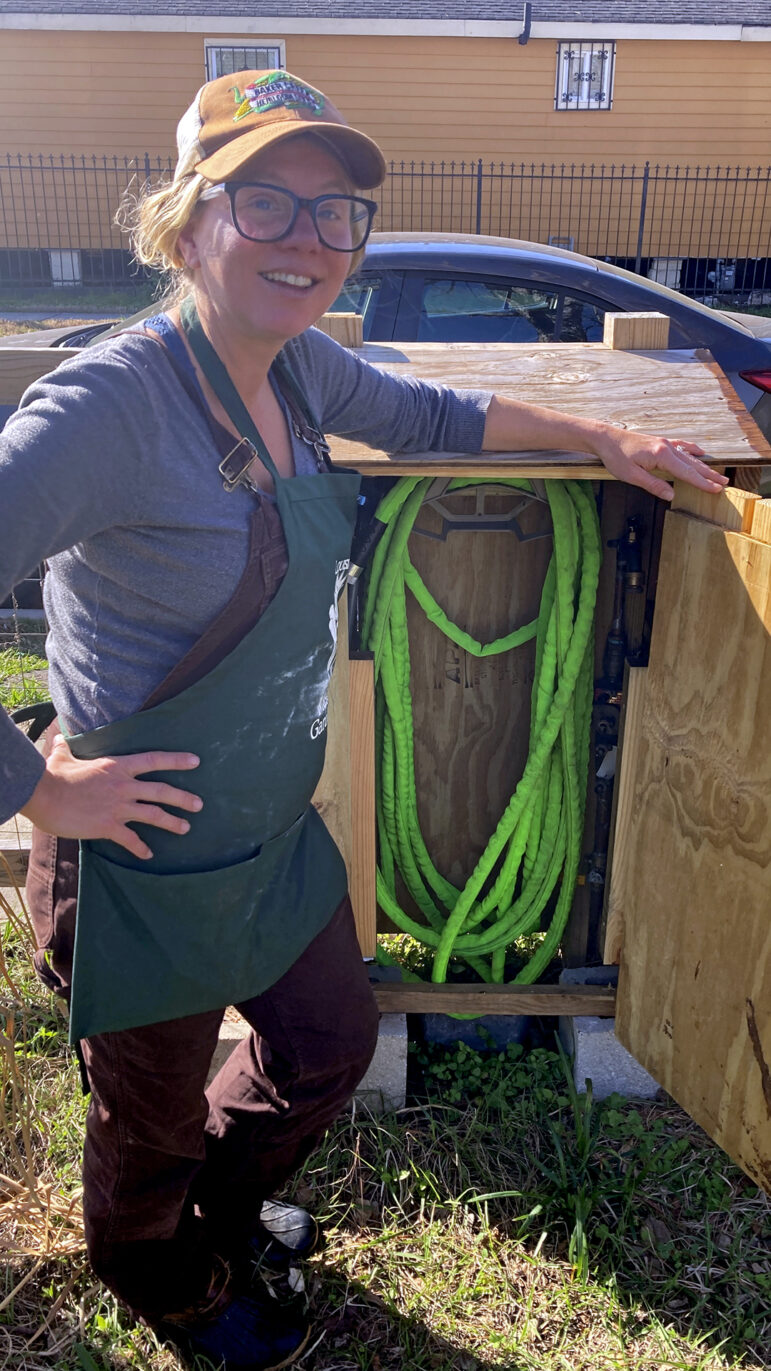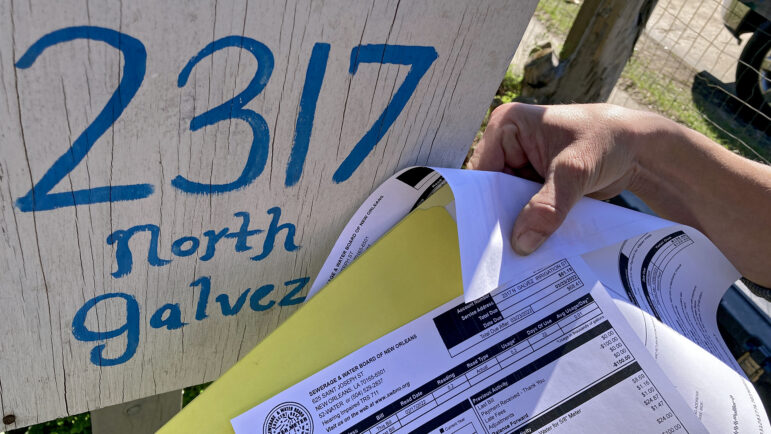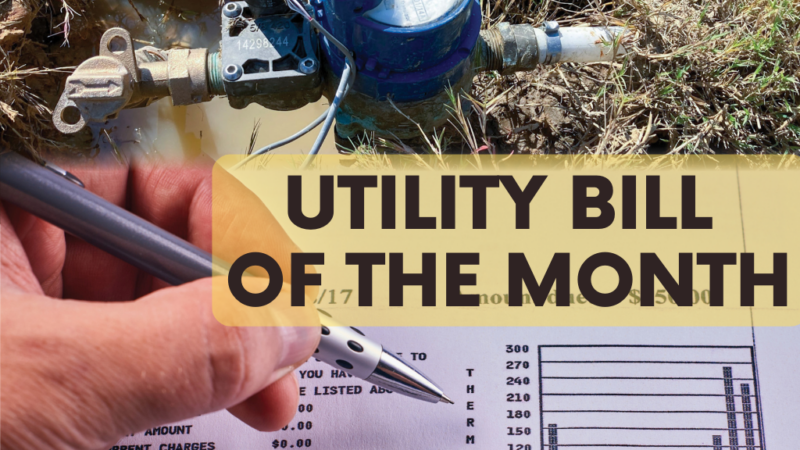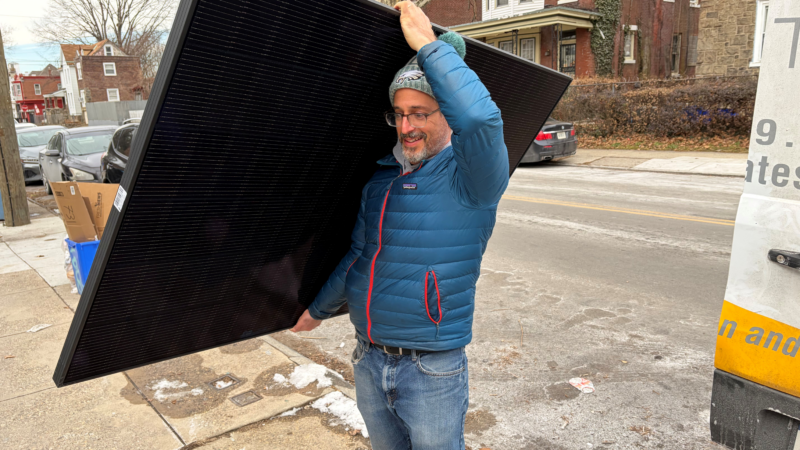A New Orleans garden paid hundreds of dollars in fees for a sewer that doesn’t exist
This story is part of a crowdsourced project investigating utility billing issues in Alabama, Louisiana and Mississippi. Do you have a utility bill you’d like us to look into? Submit it here, and with your permission, we may use it in one of our monthly features.

One of the most expensive parts of a water bill can be the sewage fees. That’s especially frustrating when you don’t have a sewer.
The operator of the Galvez Garden, a community garden in New Orleans, spent two years fighting those fees the New Orleans Sewerage and Water Board put on the garden’s account. Despite water usage that was just a few dollars each month, the utility charged the garden more than $600 across those years for a sewer that never existed.
“Do you know how many tomato plant starters I could buy for that?” Lissie Stewart, the owner of the Galvez Garden. “So many.”
The New Orleans Sewerage and Water Board did not answer questions about Stewart’s experience, but water utility experts say this kind of unhelpful, unresponsive customer service is common from water providers. Utilities have serious challenges to deal with — aging infrastructure, the impact of climate change and a lack of revenue to pay for it all — so errors like this can go unaddressed for years.
Stewart created the Galvez Garden out of an empty plot of land in New Orleans’ St. Roch neighborhood with the help of a $10,000 grant from the U.S. Department of Agriculture. Today, Stewart, her family and volunteers grow tomatoes, lettuce and other vegetables for the neighbors.
Doing that work required plenty of water. Most of that did and still comes from rain barrels, but dry stretches require Stewart to drag gallons back and forth with her Toyota. Not long after starting the garden, she requested a water connection for a hose from the NOS&WB.
Very quickly, she realized something was off with her bills.
Her first bill in early 2022 listed the water usage charge at $1.61. The total for the bill, however, was 10 times that much — $161.
A one-time deposit accounted for $100, no issue there. Nearly all the rest of the charges were fees. One for trash pickup and nearly $25 for sewage. But the garden has no trash cans to pick up, no sewer, no building, no toilet and no drain for water.
Stewart called and was able to get the trash charge removed relatively quickly, but the sewage fees took years of calling and meetings with representatives to resolve. It was not until exactly two years later — in February — that Stewart’s account was credited $646.96 for the continuous mistake.
Even then, the sewage fee was still on her bill. For that, she had to wait another month.
“I wanted to smash my head against the wall because it’s very frustrating,” she said.

Bureaucracy fumble
Errors like the one on Stewart’s bills crop up more often for large water systems, like the one in New Orleans, that have to manage more than 100,000 accounts. The mistakes can be costly for the utilities, too, leading to under-billing at a time when they desperately need more revenue.
“Utilities can shoot themselves in the foot sometimes as often as they might go the opposite direction and overcharge certain customers,” George Kunkel, principal at Kunkel Water Efficiency Consulting, said.
Kunkel said utilities tend to be much better at tracking down leaks than these types of billing mistakes. He added that private water providers also tend to be better at managing large bureaucracy than the public utilities, but customers often end up paying higher rates.
Call your mom
For a long time, water utilities have been thought about as a silent service. Customers would only get contacted for bills, emergencies or about raising rates. Center for Water Security and Cooperation Director Alexandra Campbell-Ferrari said that has led to weak relationships with customers and that’s at the detriment of the utilities.
“If you’re calling your mom and asking for money and that’s the only reason you ever call, she’s going to get less and less likely to help you out over time,” Campbell-Ferrari said. “Same with the utilities. The customers are going to get more and more annoyed with issues or challenges or rate increases if the only time they hear from their utility is when there is a rate increase, a bill or an emergency.”
She said customers are also more likely to campaign against rate increases — after all, why support sending more money to a service that bills customers incorrectly for years? It’s a question water utilities across the South must ask and why JXN Water in Mississippi introduced a new customer line last year ahead of raising rates. Those efforts to build trust in Jackson have been met with mixed results.

Joy and warnings
By Stewart’s math, she has enough credit on her account to pay for her water usage for the next four-and-a-half years. But she says she’s not alone in the New Orleans garden community when it comes to nightmare water bill stories.
And while she wants to see more gardens like hers takeover empty lots across the city, she’d make sure to warn anyone considering it of just how tough a job it can be. Her first warning would be about dealing with the water utility.
“If somebody were to sit down and really talk to me about how much work it takes to start a community garden in New Orleans, I might talk them out of it,” Stewart said. “But it brings my family great joy.”
This story was produced by the Gulf States Newsroom, a collaboration between Mississippi Public Broadcasting, WBHM in Alabama, WWNO and WRKF in Louisiana and NPR.
When a horse whinnies, there’s more than meets the ear
A new study finds that horse whinnies are made of both a high and a low frequency, generated by different parts of the vocal tract. The two-tone sound may help horses convey more complex information.
Trump’s many tariff tools mean consumer prices won’t go down, analysts say
The Supreme Court struck down President Trump's signature tariffs. But the president has other tariff tools, and consumers shouldn't expect cheaper prices anytime soon, economists say.
Hundreds of American nurses choose Canada over the U.S. under Trump
More than 1,000 American nurses have successfully applied for licensure in British Columbia since April, a massive increase over prior years.
Tax credits for solar panels are available, but the catch is you can’t own them
Rooftop solar installers are steering customers toward leases instead of purchases. Federal tax credits for purchased systems have ended but are still available for leased ones.
5 takeaways from Trump’s State of the Union address
President Trump hit familiar notes on immigration and culture in his speech Tuesday night, but he largely underplayed the economic problems that voters say they are most concerned about.
China restricts exports to 40 Japanese entities with ties to military
China on Tuesday restricted exports to 40 Japanese entities it says are contributing to Japan's "remilitarization," in the latest escalation of tensions with Tokyo.







